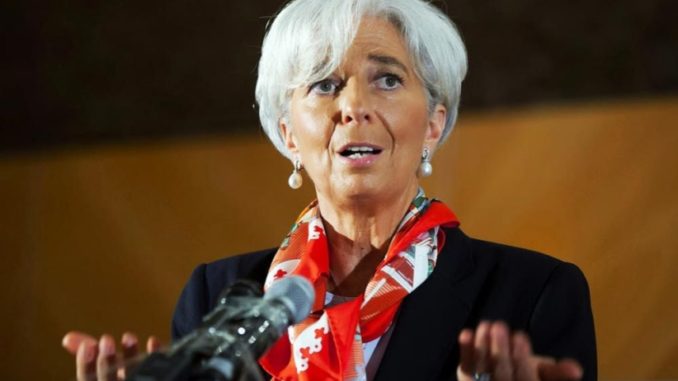
BUENOS AIRES – The Executive Board of the International Monetary Fund (IMF) has approved a three-year Stand-By Arrangement (SBA) for Argentina amounting to US$50 billion (equivalent to SDR 35.379 billion, or about 1,110 percent of Argentina’s quota in the IMF).
The Board’s decision allows the authorities to make an immediate purchase of US$15 billion (equivalent to SDR 10,614 billion, or 333 percent of Argentina’s quota). One half of this amount (US$7.5 billion) will be used for budget support. The remaining amount of IMF financial support (US$35 billion) will be made available over the duration of the arrangement, subject to quarterly reviews by the Executive Board.
The authorities have indicated that they intend to draw on the first tranche of the arrangement but subsequently treat the remainder of the arrangement as precautionary.
The Argentine authorities’ economic plan backed by the SBA aims to strengthen the country’s economy by restoring market confidence via a consistent macroeconomic program that lessens financing needs, puts Argentina’s public debt on a firm downward trajectory, and strengthens the plan to reduce inflation by setting more realistic inflation targets and reinforcing the independence of the central bank.
Importantly, the plan includes steps to protect society’s most vulnerable by maintaining social spending and, if social conditions were to deteriorate, by providing room for greater spending on Argentina’s social safety net.
Following the Executive Board discussion of Argentina’s economic plan, Ms. Christine Lagarde, Managing Director and Chair, summarized the Board’s findings:
“For the past 2½ years, Argentina has been engaged in a systemic transformation of its economy, including deep changes to foreign exchange markets, subsidies, and taxation, as well as improvements to their official statistics. Nonetheless, a recent shift in market sentiment and an ill-fated confluence of factors have placed Argentina under significant balance of payments pressures. Amid these challenging circumstances, the Government has requested IMF support in implementing its own policy plans.
“The authorities’ intended policies seek to address longstanding vulnerabilities, ensure that debt remains sustainable, reduce inflation, and foster growth and job creation, while reducing poverty.
“Given the large fiscal deficits over the past several years, the Government’s economic program is anchored on the goal of achieving federal government primary balance by 2020. This will be key to restoring market confidence. Improving the budgetary process and providing this medium-term anchor for fiscal policy will help to entrench these gains.
“The authorities also aim to rebuild the credibility of the inflation targeting framework, including by strengthening central bank independence and ending direct and indirect central bank financing of the government. These efforts are expected to bring inflation to single digits by end-2021.
“The authorities are committed to a floating, market-determined exchange rate. They intend to limit foreign exchange intervention to periods of significant volatility and market dysfunction, and to rebuild reserve buffers.
“The program places considerable emphasis on maintaining social cohesion, encouraging gender equality, and protecting society’s most vulnerable. The authorities, at the highest level, are strongly committed to these principles. The most vulnerable population will be assisted by well-designed government support programs that will be prioritized within the program targets. The Government has also prioritized gender equity to realize the potential and benefits from Argentine women fully participating, on equal footing, in the economy.
“The Argentine Government has demonstrated its strong ownership of the program, which is custom-tailored for the situation faced by the people of Argentina. There are evident risks to the program but steadfast implementation of the policy plans will allow the country to fully capitalize on its economic potential, and to ensure that all Argentines are included in the country’s future prosperity.”–MercoPress



